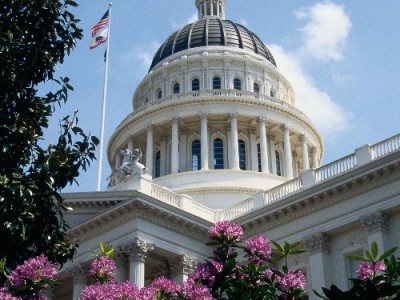Politics
Wyoming Wind Power and California Electricity
Supporting renewable energy in Wyoming makes political sense
A company wants to build a lot of wind power in Wyoming. A lot. 3,000 megawatts. The size of three nuclear reactors. And ship all of the power to California. None of it will be used in Wyoming, where electricity primarily comes from coal, and where the state has been strongly resistant to various policies …
Continue reading “Wyoming Wind Power and California Electricity”
CONTINUE READINGA solar energy fight in Arizona
The rising political power of residential solar power
There’s a fight over renewable energy occurring in Arizona right now. The state’s largest public utility asked state regulators for permission to greatly increase the fees paid by homeowners who have solar power on their houses. The utility’s argument is that the increase in solar power produced by these houses is putting a burden on …
Continue reading “A solar energy fight in Arizona”
CONTINUE READINGThe Filibuster and the Environment
In the short run, limiting the filibuster will strengthen the hands of environmental regulators. What about the long run effects?
The filibuster arguably served a useful function when it allowed the minority to block action in extraordinary cases where its views were especially intense. It became no longer tolerable when it became a routine barrier to Senate action. Last week, the Senate abolished filibusters for nominations (except the Supreme Court). What does this mean for environmental …
Continue reading “The Filibuster and the Environment”
CONTINUE READINGToday’s House Subcommittee Hearing on Climate Change
President Obama’s recent announcement on climate change irritated some in Congress—but we didn’t need a hearing to find that out.
Today, Republican leaders in the House Energy and Power Subcommittee called a hearing to discuss climate change. Has the Right suddenly taken an interest in responding to climate change? As you might anticipate, the answer is no. The hearing, entitled “The Obama Administration’s Climate Change Policies and Activities,” focused on attacks to the President’s Climate …
Continue reading “Today’s House Subcommittee Hearing on Climate Change”
CONTINUE READINGThe Roberts Court’s Corporate Romance
Forty years ago, before going on the Supreme Court, Lewis Powell wrote a call to arms for business interests, calling on them to counter “enemies of the free enterprise system” like Ralph Nader. Among other things, he recommended a concerted campaign to influence the courts. The campaign seems to have been a success. The NY Times …
Continue reading “The Roberts Court’s Corporate Romance”
CONTINUE READINGOn the politics of the Keystone pipeline
This article from the New York Times a couple of days ago describes how President Obama, on a fundraising visit here in the Bay Area, made clear how difficult environmental politics are for a President in the midst of a recession – especially the Great Recession: Appearing at the home of an outspoken critic of …
Continue reading “On the politics of the Keystone pipeline”
CONTINUE READINGThe future of climate politics (Pt. 2)
In my last post, I noted a recent report that called for a new political path for environmentalists and others seeking to enact carbon policy in the United States, one that focused on developing policy proposals that would help mobilize a grassroots movement to support limits on greenhouse gases. My question was, is there anything …
Continue reading “The future of climate politics (Pt. 2)”
CONTINUE READINGThe future of climate politics (Pt. 1)
I’m a little late to the game here, but I’ve finally had a chance to read Harvard Prof. Skocpol’s post mortem of why she thinks cap-and-trade legislation failed in the U.S. Congress in 2009-10, and what she thinks the best way forward in the future is. (Dan blogged about this already here and here; Matt …
Continue reading “The future of climate politics (Pt. 1)”
CONTINUE READINGSetting the Record Straight on Obama and the Environment
We shouldn’t underestimate Obama’s environmental achievements.
CONTINUE READINGThe role of science in climate politics
Jonathan in his recent post and his comments to that post made a big point of emphasizing the importance of science as the basis for action in terms of climate change. He also emphasized his belief that the denial of climate change by leading Republicans in the current campaign is an unprecedented rejection of science …
Continue reading “The role of science in climate politics”
CONTINUE READING







